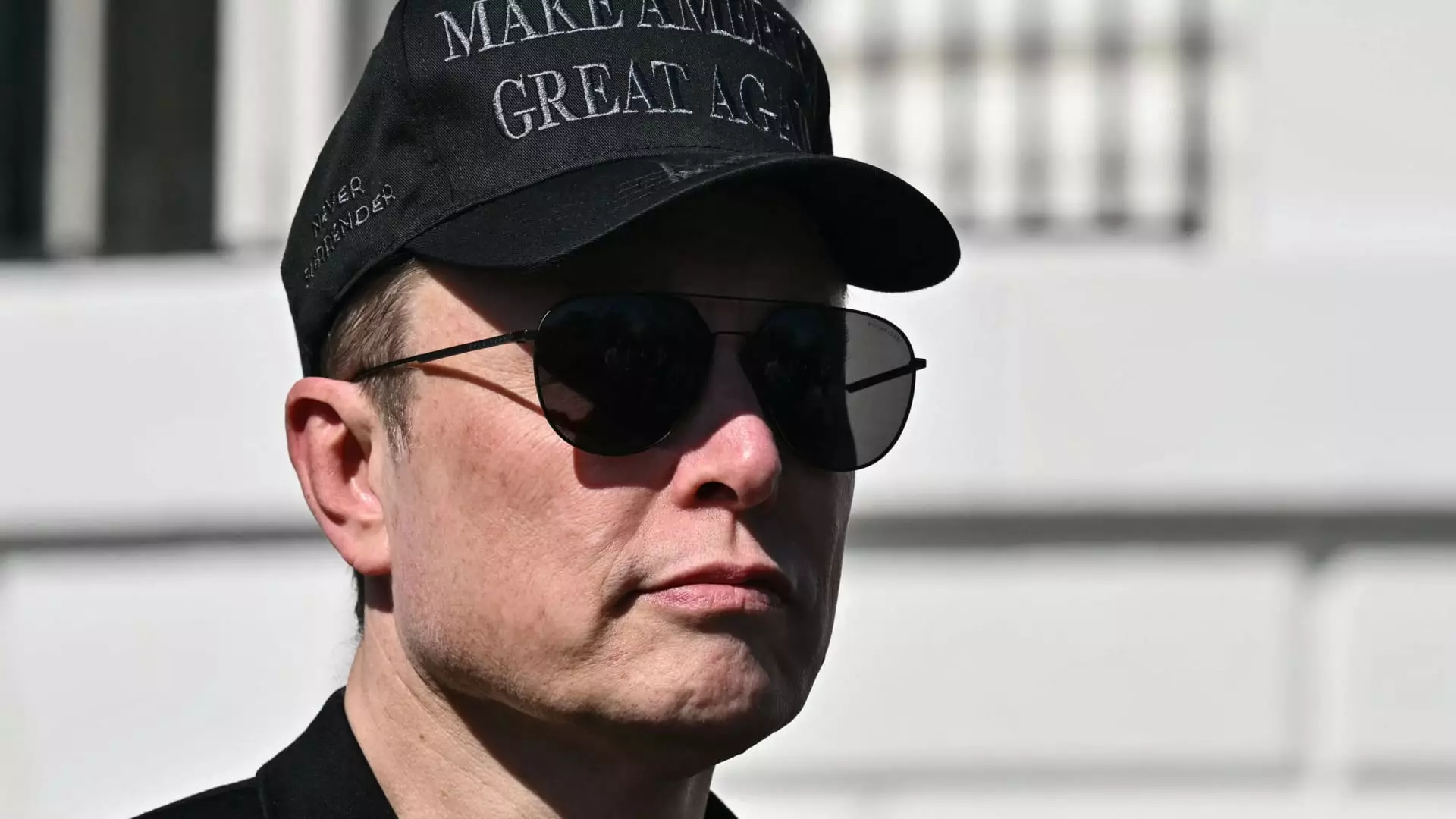Elon Musk, a name synonymous with innovation and disruption, has found himself entangled in legal turmoil yet again. Recently, he received a court summons in connection with a lawsuit from the SEC regarding his alleged failure to disclose significant stock purchases in Twitter (now rebranded as X) prior to his ambitious $44 billion acquisition in 2022. Although he has become known for his boundary-pushing endeavors, this incident reveals a different side of Musk—a side that raises questions about transparency and accountability in the high-stakes game of private equity.
The summons was delivered on March 14 at SpaceX’s headquarters in Brownsville, Texas. The process of delivery alone was fraught with drama. Musk’s security evidently refused entry to the server attempting to deliver the legal documents, leading to an unconventional situation where the summons was abandoned on the ground after being deemed “trespassing.” The bizarre exchange serves as a footnote to an unfolding narrative that illustrates the complexities of operating at the pinnacle of tech entrepreneurship.
The Securities Exchange Commission’s Allegations
The SEC’s case against Musk centers around a critical premise: he allegedly failed to disclose that he had accumulated a stake exceeding 5% in Twitter within the legally mandated timeframe of 10 days. Such disclosures are designed to promote transparency and safeguard against potential market manipulation. The SEC’s complaint contends that Musk’s delay permitted him to purchase additional shares at a lower rate, thereby benefiting financially—allegedly to the tune of about $150 million. This is a stark reminder that even the most illustrious figures are not above the law.
What stands out here is not just the legal ramifications but also what this says about the ethos of leadership in the tech sector. Musk has built a personal brand on the foundations of innovation and accountability, leading transformative companies like Tesla and SpaceX. Yet, this latest controversy raises legitimate criticisms regarding whether these values extend beyond the façade of success.
The Broader Implications for Regulatory Oversight
Moreover, the timing of Musk’s summons coincides with broader concerns about regulatory rigor under the Trump administration, which has demonstrated a willingness to cut back on the autonomy and enforcement capabilities of agencies like the SEC. The agency has endured budget constraints that could hinder its investigative capabilities. For instance, voluntary retirement incentives offered to employees indicate a shrinking workforce, while legislative changes have made formal investigations more cumbersome. Such transformations could reflect a shrinking commitment to oversight, making Musk’s challenges emblematic of a much larger issue concerning corporate accountability.
The implications of such a regulatory atmosphere extend far beyond Musk himself. If the SEC struggles to efficiently conduct investigations into stock trading and market behavior, it could set a precarious precedent that endangers the integrity of financial markets. The historical significance of such regulations cannot be overstated, especially in an era where technological advancements create rapidly evolving investment landscapes.
A History of Controversy
Musk’s history with the SEC is not a new chapter in his multifaceted career. He has previously settled charges related to securities fraud tied to Tesla, during which he and the company incurred a collective penalty of $40 million. Such a pattern of running afoul of regulatory frameworks raises alarm bells—not just for investors but for the ethical standards perpetuated within corporate cultures. Musk’s prominence illustrates the complexities of a tech leader who simultaneously inspires and raises eyebrows in equal measure.
Presently, Musk’s legal team is expected to respond by April 4, a crucial deadline that will determine the next steps in this ongoing saga of regulatory scrutiny. How he navigates this situation will speak volumes about his approach to leadership amid accountability challenges. Can he maintain his innovative edge while adhering to industry standards, or is he simply a revolutionary operating outside the bounds of conventional governance?
As the clock ticks down to his response, the situation remains one to watch closely, both for Musk’s stakeholders and the greater narrative of corporate governance in an era increasingly defined by technological disruption. This unfolding drama raises pivotal questions about the responsibilities that accompany power in the business world, providing a critical lens through which to assess not just Musk, but the entire industry.

